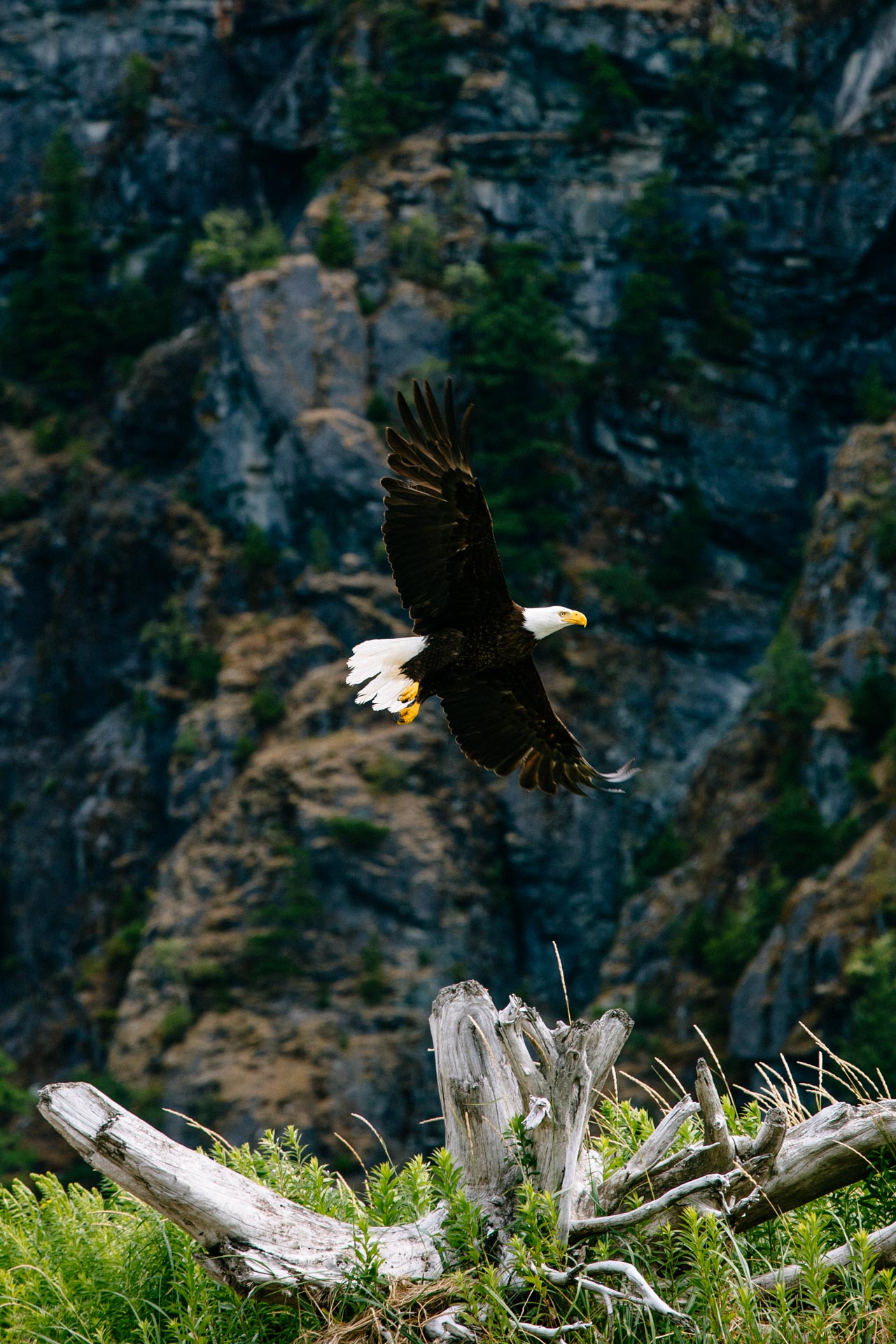Conserving Wild Salmon
Salmon sustain the ecosystem and people of BC’s inner central coast and have done so for thousands of years. In the face of climate change and global demand for salmon, this area needs a strong voice to implement practical strategies that will protect wild salmon moving forward.
We consider BC’s inner central coast as the marine areas inside of Fitz Hugh Sound and the watersheds that drain into those areas. Salmon provide enormous amounts of marine-derived nutrients to the region’s ecosystem, which supports diverse flora and fauna including iconic species like killer whales, grizzly bears, wolves, bald eagles and steelhead. The area overlaps Nuxalk and Heiltsuk ancestral territory and is home to a handful of small communities who all depend upon the wealth of natural resources that wild salmon enable.
Coastal Rivers Conservancy is committed to amplifying the voice of salmon conservation and to developing conservation capacity in this region. 2019 marks our first year in operation.
Our Mission
Coastal Rivers Conservancy is dedicated to protecting wild salmon and steelhead in BC’s inner central coast, so they continue to sustain the region’s people and ecosystem well into the future.
Our Approach
We take a collaborative regional approach to address complex fisheries management, habitat and development issues that impact BC’s inner central coast ecosystem and communities.
We cooperate with First Nations, NGOs, government agencies, and stakeholders to develop and maintain up-to-date knowledge of salmon and to implement protections that lead to their best possible long-term health.
We use existing policy and laws to safeguard the many ecological, cultural, and economic benefits that wild salmon and steelhead provide to the region both now, and for future generations.
Our Work
Coastal Rivers Conservancy strives to develop durable conservation solutions that acknowledge aboriginal rights, indigenous culture, local economic realities and Canadian values. Our work focuses on three main program areas:
Applied Scientific Research:
We undertake and sponsor research that improves knowledge of wild salmon and can be applied by resource managers to conserve salmon and ecosystems. We work with First Nations and conservation collaborators to advocate for the implementation of sustainable resource use policy and practices that are ecologically, culturally and economically sustainable.
Public Education and Awareness:
We make our research results available to the public and facilitate discourse about conservation issues that arise. We collaborate broadly to share and exchange scientific and cultural knowledge of salmon and their significance. We inform and educate the public of critical conservation issues and potential solutions that address those issues.
Conservation Capacity:
We collaborate broadly to engage people in conservation dialogue and activities. We work with First Nations to help build conservation capacity in local communities. We fund and support programs that help indigenous youth connect to the natural world and to develop an interest in conservation. We collaborate with First Nations to develop stock and habitat research that can be applied to resource management decisions. We provide educational opportunities through internships, presentations, workshops and field trips.
Our Funding
We are growing our funding base and are working toward becoming a registered Canadian charity. For now, we want to give special thanks to the Wild Salmon Center (WSC) and The Stronghold Fund (WSC’s impact fund). Their support has made it possible for Coastal Rivers Conservancy to undertake this much needed conservation effort.
We anticipate that the bulk of our future funding will come from a combination of charitable organizations, businesses and individual donors residing in Canada and the United States.
Coastal Rivers Conservancy will continue to work with the Wild Salmon Center to bring resources and expertise to the region.

